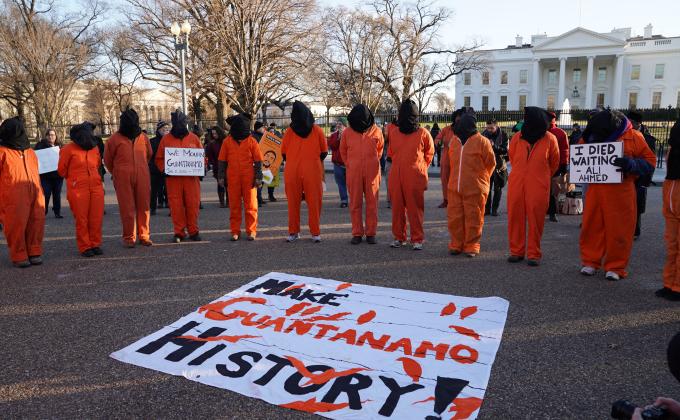Once again, the General Court of the EU dealt with the Kadi-case on the legality of the blacklisting and the freezing of financial assets on the basis of the European regulations that implement the UN Security Council Resolutions (UNSCR) 1267, 1333, and follow-up resolutions.
In Kadi I, the European Court of Justice (ECJ) had annulled the European Commission (EC) regulation implementing the 1267 sanctions regime against Mr. Kadi. In fact, Mr. Kadi was almost immediately re-listed by the Council of the EU in a new regulation. A new challenge by Kadi with the "General Court of the EU", the new name of the ECJ, was the result. At stake was also whether new SC measures Resolution 1730 (2006) and in particular Resolution 1904 (2009) establishing the Office of an Ombudsman) were to be considered sufficient. That was not the case. It was as saying, that the system does not need a little adjustment, but major changes are needed to this system of blacklisting before it can pass the test of respect for fundamental human rights, most notably the principles of a fair trial and access to justice. In other words: it does not need a little stir, but it really needs to be shaken up!
The facts of the case are as follows: the UN Sanctions Committee, charged with implementing the 1267-regime of the UN Security Council, placed Mr. Kadi on the sanction list in 2001, which resulted in the obligation for states to freeze his financial assets. In general, individuals can be listed if they can be associated with Al Qaida or Osama bin Laden. Requests for listing are made by member states, and are based on intelligence information, that is hardly shared with other states. Resolutions adopted by the Security Council under Chapter VII of the UN Charter are binding for the member states, and even override other international obligations, and hence the European Union, following the decision of the Sanctions Committee, adopted several Regulations to give effect to the Security Council resolutions, and in essence copy-pasted the list of the Sanction Committee. Within the system of the 1267-regime, it is since 2005 required to issue a statement of reasons to explain the listing of individuals, and individuals are also able to request a de-listing (see earlier Commentary on the establishment of an Ombudsperson). A request for de-listing, however, does not open the opportunity for the listed individual to get full access to the evidence that provided the reason for the original listing. Moreover, the decision on the request for de-listing is still made by the Sanction Committee, which is a political body. Mr. Kadi started his legal odyssey against the listing in Europe in December 2001 before the Court of First Instance (now the General Court).
The Court of Justice of the EU had already issued a groundbreaking judgment in September 2008 on the Kadi-case before its General Court once again dealt with this case in its judgment of September 2010. It then set aside the judgment of the Court of First Instance (CFI), stating that the CFI had erred in law by refusing to review the lawfulness of the EU regulation at issue because of their inability to review the lawfulness of the Security Council resolution that provided the basis of the EU regulation. The Court stated that "an international agreement cannot affect the allocation of powers fixed by the Treaties or, consequently, the autonomy of the Community legal system"; "the obligations imposed by an international agreement cannot have the effect of prejudicing the constitutional principles of the EC Treaty". The Court thus referred to the principles laid down in the Treaty, that have to be respected by the EU institutions whenever any regulation is adopted. These principles include fundamental human rights. The Court then stated that it follows from the EC Treaty that the Community judicature ensures "the review, in principle the full review, of all Community acts in the light of the fundamental rights forming an integral part of the general principles of Community law, including review of Community measures which, like the contested regulation, are designed to give effect to the resolution adopted by the Security Council under Chapter VII of the Charter of the United Nations". (par. 326, Joined Cases C-402/05 P and C-415/05 P, 3 September 2008).
Clearly, this judgment of the Court of Justice was the reason for joy amongst human rights defenders, and nervousness amongst the EU institutions, States, and the UN Sanction Committee. The EU institutions concerned with implementing the Security Council resolution wondered how to implement the freezing sanction issued by the Security Council while at the same time respecting the requirement of offering a full review of the regulation, given the fact that the decision to list an individual is made by the Sanction Committee of the UN, and based on confidential information that is not fully shared by states who nominate a person. Many States were concerned that this judgment would undermine the supremacy of the Chapter VII resolution of the Security Council, and the Security Council was more than ever before confronted with the risk of ineffectiveness of its resolutions. Immediately after the Court of Justice issued its judgment in 2008, the European Commission, replaced Mr. Kadi on the EU sanction list, thus continuing the freeze on his financial assets. The Commission sent a letter to Mr. Kadi informing him that, for the reasons set out in the summary of reasons provided by the Sanctions Committee of the Security Council, and attached to the letter, the Commission would adopt a legal act with a view to maintaining his listing. Kadi, was furthermore, invited to comment on the grounds included in the summary of reasons and to provide any information to the Commission that he might consider relevant before it took its final decision. Kadi’s comments, however, were dismissed by the Commission, and the relisting followed. The Commission asserted that by providing the individual with the statement of reasons, and by inviting him to comment on them, it had complied with the judgment of the Court of Justice in the Kadi judgment of September 2008.
Following this relisting, Kadi, once more filed a request for annulment with the General Court of the EU. In its judgment of 30 September 2010 (Case T-85/09), the General Court concluded that the mere sending of the statement of reasons, and the possibility for Kadi to comment on them, did as such not qualify as "the full review" as was intended by the Court of Justice in its earlier judgment, and that as a result, the applicant’s rights of defence have not been observed. It clarified that "the few pieces of information and the imprecise allegations in the summary of reasons appear clearly insufficient to enable the applicant to launch an effective challenge to the allegations against him so far as his alleged participation in terrorist activities is concerned". The General Court notified that a procedure might need to be defined that makes it possible to review confidential information (par. 147), to do justice to the rights of the defence. The General Court, furthermore, questioned the so-called temporary precautionary character of the freezing measure, given the fact that now 10 years have passed since the applicant’s funds were originally frozen (par. 150). It stated that "in the scale of a human life, 10 years represent a substantial period of time and the question of the classification of the measure in question as preventative or punitive, protective or confiscatory, civil or criminal seems now to be an open one". The General Court, even considers the establishment of the Ombudsperson by Security Council 1904 (2009), which technically was not applicable to this case at the time of adopting the disputed Regulation, and argues that the establishment of the Ombudsperson still does not repair the lack of a possibility of an effective judicial procedure for review of decisions (par. 128).
The latter statement, especially, is a blow in the face of the Security Council, which with the latter adjustment to the de-listing system, hoped to have silenced the main criticisms of its freezing system. The General Court of the EU, in this judgment, stated it loud and clear: the freezing measures are of such a severe character, that individuals should be allowed to challenge these measures before an independent and impartial body responsible for hearing and determining, as regards matters of law and fact, actions against individual decisions taken by the UN Sanctions Committee.
It remains to be seen how the Security Council will respond to this new challenge; although it has been slow to do so, it has always sought to find a way to accommodate member state concerns, eg by establishing the Focal Point, or more recently the Office of the Ombudsperson. Perhaps it will now be forced by the strong decentralised reactions to establish a judicial process for the determination of designations under the 1267 sanctions regime, or decide to allow decentralised determinations by the member states as in the case of 1373. In this context, regard should also be to the way the SC reacted to the report submitted by Scheinin, the special rapporteur on these and other issues. During a November 2010 session, the chairs of the SC’s three counter-terrorism committees ‘acknowledged the “criticisms” that had been levelled against their committees. However, they then pointed to reforms they had undertaken to improve methods of work, transparency and coordination, and insisted they operated in a manner consistent with human rights principles. This was a view widely shared by more than 25 States that took part in the discussion. The EU also spoke to this point, calling for procedural guarantees for individuals and entities designated by the Committee, which would contribute to the overall credibility of the UN framework.
To be continued? Kadi is not necessarily a never-ending story. It is obvious that we need to continue to make efforts to balance human rights and counter terrorism. That is also needed to uphold and/or improve support for and credibility of the underlying legal and societal paradigms of counter terrorism. It is therefore of the utmost importance to strengthen public and political support for the (European) institutions that represent the these paradigms.








